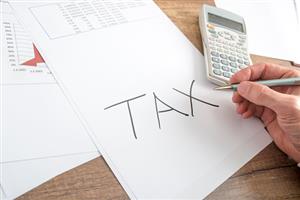
Whether you own a small business or are personally responsible for paying property taxes on your vehicles and equipment, you have likely questioned the validity of the value assessment assigned to these assets on a year-to-year basis. You look back at when they were purchased and how old they are, and try and determine if the numbers make sense in the context of actual market prices.
If you own a significant amount of furniture, fixtures, and equipment (FF&E) or vehicles, where the annual tax liability is substantial, you may have entertained the idea of disputing these estimates while looking to have the assessment adjusted to match your own internally calculated figures. Property tax disputes are not uncommon, however, if you go down this road, you will likely need independent support to present a sound case where the end result is fair and reasonable.
How are property taxes calculated on vehicles and equipment?
Unlike real estate taxes, where reassessments are completed by counties, cities, and towns every few years, based on an updated market analysis, assessments on vehicles and equipment rarely change from their initial estimates.
The purchase price and date of acquisition are the starting point where the assessor then determines a useful life and annual depreciation schedule matching the type of asset that is involved. For example, if you bought a new pickup truck for $40,000 this year, you pay property tax based on this initial cost, and again every year, under an internally calculated useful life depreciation table created by the assessor’s office. The useful life may be estimated at 10 years with annual depreciation of 6% to a salvage value of 40%. If you still own the truck after 10 years, the assessor may slow the depreciation even further going forward.
Every city and town has its own mill rate percentages which are applied to arrive at your tax payment, and cannot be disputed. The value estimate, however, is the area to target in any case where you believe it does not equate to market value. These assessments are usually calculated on very broad assumptions, while the depreciation is slow and on a straight-line basis. The salvage value estimates can tend to be quite high in comparison to fair market value
If you believe your property tax assessments are much higher than the actual market value, you can file a dispute, and even have it done retroactively, to cover prior tax periods in earlier years. It’s always a good idea to complete a detailed internal assessment first, and then reach out to an accredited appraiser who can independently perform an appraisal on your vehicles and equipment. The more prepared you are throughout the dispute process, the better chance you have of a fair and successful outcome.


